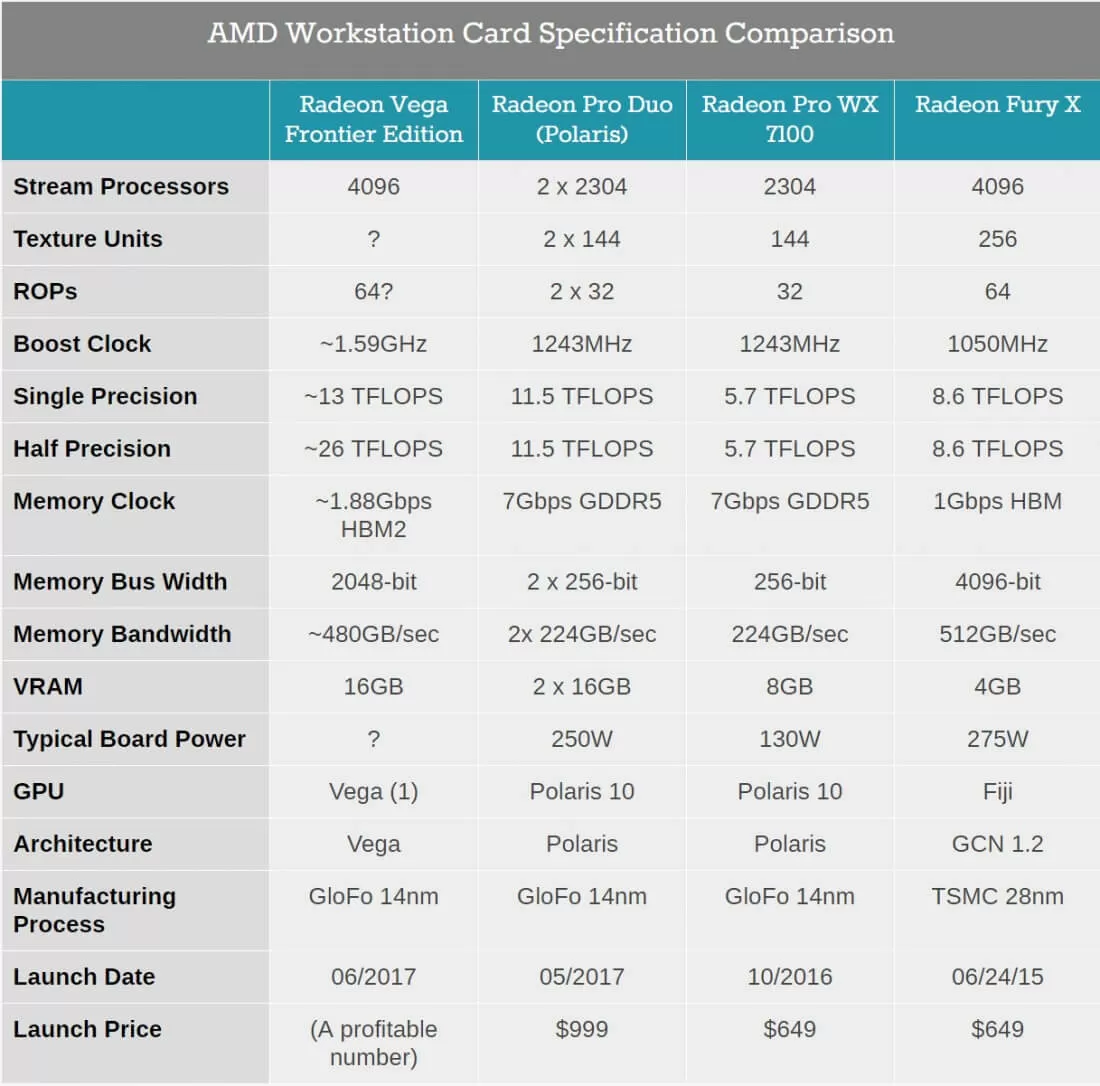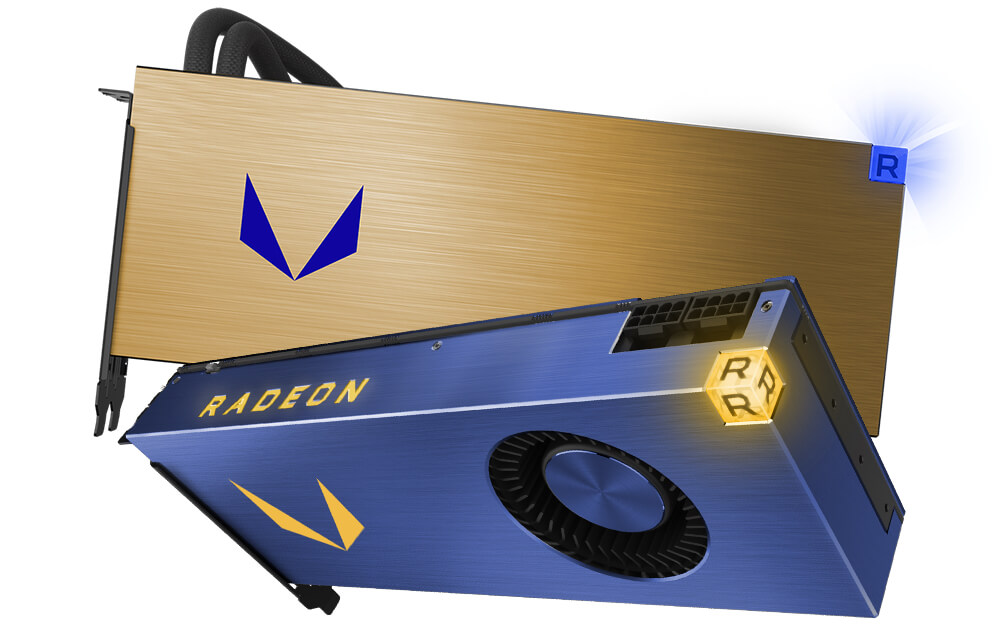Nvidia got a lot of attention last week when it unveiled the Tesla V100, a high-performance computing chip based on the company's seventh-generation Volta architecture. Now, it's AMD's turn in the spotlight. At its Financial Analysts Day call, the company revealed the first Radeon graphics card based on its Vega architecture: the Radeon Vega Frontier Edition.

As with Nvidia's latest accelerator, AMD is aiming for the professional market with this GPU; think workstations, machine learning, AI, game developers, advanced visualization, etc. which means it'll have a $1000+ price tag that'll help boost AMD's profits.
When it comes to specs, the Frontier is quite a beast. It boasts 64 "next generation compute units" (4096 stream processors) producing 13 teraflops of single precision (FP32) performance and around 25 teraflops of half precision (FP16) performance. AMD is calling it "the fastest graphics card on the planet."

The 14nm card, which features 8K display support, also comes with 480GB/sec of memory bandwidth and 16GB of HBM2 memory. It uses AMD's High-Bandwidth Cache Controller memory architecture, which allows applications to quickly and easily access off-card storage like system DRAM, non-volatile RAM, and networked storage like SSDs and HDDs.
"Thanks to automatic, fine-grained memory movement controlled by the high bandwidth cache controller, Vega enables creators and designers to work with much larger, more detailed models and assets in real time," the company explains on its product website.
Anandtech has provided a helpful comparison table:

AMD revealed some benchmarks comparing the Frontier's performance to Nvidia's Titan Xp. The red team's GPU was 27 percent faster when using 3D CAD program Catia and 70 percent quicker in Solidworks, another piece of CAD software. There was also an on-stage demo of the Frontier pushing Sniper Elite 4 to 60 - 70 fps in 4K.
The Frontier will be released in late June. No word yet on pricing, but you can guarantee it will be expensive.
While the card is primarily aimed at enterprise users - AMD is advising gamers to hold off on buying one and wait for the cheaper gaming cards - it gives us some idea of what to expect when the Vega-based consumer GPUs launch in the second half of this year.
